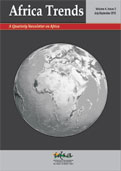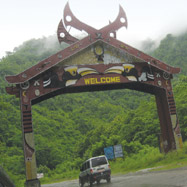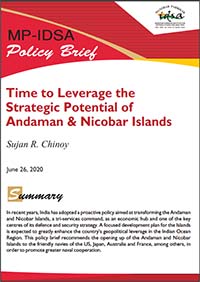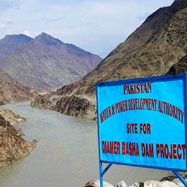Search Result
What Does Success Against COVID-19 Mean for Taiwan?
The ruling DPP Government in Taiwan is likely to further build on the gains made in domestic politics and in ‘pragmatic diplomacy’ internationally, occasioned by COVID-19, without indulging in any geopolitical exuberance.
- Prashant Kumar Singh
- 2020 |
- Issue Brief
- |
Philani Mthembu, China and India’s Development Cooperation in Africa: The Rise of Southern Powers, Palgrave Macmillan, 2018
The 21st century has witnessed a marked shift in the trends of development cooperation. The earlier developing countries who received foreign aid from developed countries have now begun to themselves engage in extending foreign aid to fellow developing as well as underdeveloped countries. This book provides an enriching insight into these trends particularly focusing on India and China’s development cooperation in Africa. Philani Mthembu examines the determinants that push China and India to pursue development cooperation activities in Africa. Furthermore, he explores why only certain countries have received more aid as compared to others.
- Sindhu Dinesh
- 2020 |
- Africa Trends
- |
Egypt’s Assertive Military Posturing: Causes and Consequences
In June 2020, Egyptian President Fatah al-Sisi threatened military action in Libya unless the Turkish-backed forces halt their advances in Eastern Libya.1
- Prabhat Jawla
- 2020 |
- Africa Trends
- |
Is Northeast Poised for Lasting Peace?
With reduced levels of violent incidents and overall death tolls, the security situation in the Northeast has indubitably improved. However, there remain areas of concern that need to be addressed in a timely and suitable manner.
- Pushpita Das
- 2020 |
- Issue Brief
- |
The Cartographic Route to Deeper Strategic Partnerships
Considering that the US, Japan, Australia and India are committed to working for a free, open and rules-based Indo-Pacific, it is time for India’s strategic partners to review their cartographic positions on India’s borders.
- Amb. Sujan R. Chinoy
- 2020 |
- Policy Brief
- |
Beijing’s Soft Diplomacy in West Asia in Times of COVID-19
China’s soft diplomacy in West Asia, particularly in times of pandemic, is a way to improve its global image and recast itself as a responsible actor at relatively low cost, rather than a sign of any deeper commitment towards the region.
- Nagapushpa Devendra
- 2020 |
- IDSA Comments
- |
Time to Leverage the Strategic Potential of Andaman & Nicobar Islands
A focused development plan for the Andaman and Nicobar Islands, which provide India with a commanding geostrategic presence in the Bay of Bengal and access to South and Southeast Asia, could greatly enhance the country’s geopolitical leverage in the Indian Ocean Region.
- Amb. Sujan R. Chinoy
- 2020 |
- Policy Brief
- |
Chinese Glimmer to Pakistan’s Dam Distress
China's decision to fund the controversial Diamer-Bhasha Dam in Gilgit Baltistan could be part of its strategic pursuits in the region to further deepen its engagement in India’s neighbourhood.
- Priyanka Singh
- 2020 |
- Issue Brief
- |











